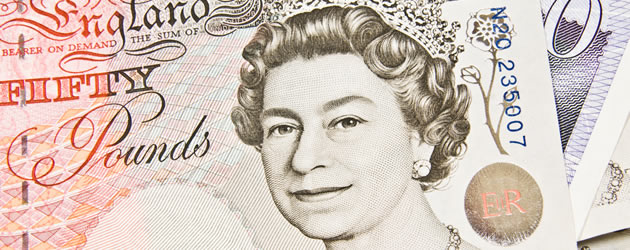- Euro bearish despite upwardly revised Eurozone CPI
- BoE dovish as interest rates on hold for 85th month in row
- Narrowed Eurozone trade surplus weighed on EUR/GBP exchange rate
- Greek bailout review expected to maintain downside pressure on EUR
Positive Eurozone Inflation Failed to Boost Euro to Pound Sterling (EUR/GBP) Exchange Rate
Confidence in the Euro was a little shored up by the news that the Eurozone’s Consumer Price Index had been revised upwards to 0.0% in March, although the EUR/GBP exchange rate failed to record much in the way of gains. This indicated that, in spite of the increasing negative inflationary pressure seen in Greece, inflation across the currency union had largely stabilised. However, although this was an improvement it was not considered substantial enough to encourage the European Central Bank (ECB) to move away from its current loosening bias.
Safe-haven demand took a blow on Friday as the latest Chinese data encouraged a fresh bout of risk appetite amongst traders. The appeal of the single currency was equally undermined as the Eurozone’s February trade surplus was found to have narrowed further than forecast, sinking from 22.8 billion to 20.2 billion Euros.
Pound Sterling (GBP) Regained Strength Following Dovish BoE Meeting
Traders were not overly impressed with the Bank of England’s (BoE) decision to leave interest rates on hold for the eighty-fifth month in a row, in spite of markets having anticipated another unanimous vote to this effect. The Monetary Policy Committee (MPC) indicated that it is unlikely to take a more hawkish view until after the EU membership referendum in June, a prospect which encouraged the Pound (GBP) to trend lower against rivals. Nevertheless, researchers at ANZ noted:
‘Certainly with headline inflation at 0.5% y/y in March and the Brexit vote approaching, the BoE has time on its side before seriously considering tightening policy to be better in line with the underlying strength of the real economy, especially (as the minutes acknowledge) given the modestly negative impact the EU membership debate is having on business spending.’
Pound Sterling recovered some of its lost ground on Friday, however, as the Office for National Statistics indicated that the UK construction sector had expanded 1.5% in the three months to February. With house building in particular showing its strongest jump since the creation of the measure, clocking in at 6.8%, the Euro to Pound Sterling (EUR/GBP) exchange rate weakened further to a two day low of 0.7940.
EUR/GBP Exchange Rate Forecast: Fraught Greek Debt Talks to Weigh on Euro
Greece is likely to remain a prominent source of Euro volatility in the coming week, with participants in the country’s bailout review demonstrating increasingly disparate views on progress. When talks recommence on Monday markets will be hoping to see a relatively speedy resolution, although this looks decidedly unlikely in the current climate. Should the review continue to drag on the single currency is expected to experience a detrimental impact, especially as the summer will see Greece due to make significant repayments to both the IMF and the ECB.
As the official campaigning period for the EU referendum has now begun the Pound is likely to experience additional downside pressure from mounting ‘Brexit’ uncertainty, with investors inclined to move away from the now inherently risky Sterling. The Pound could still extend its recent gains, however, if Monday’s Rightmove House Price Index demonstrates continued strength in the domestic housing market.



